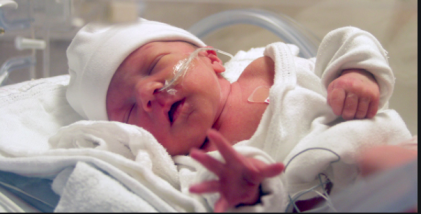Today, babies born as early as 28 weeks routinely survive, as do more than half of those born at 24 weeks (although often with significant disabilities). Much of the credit goes to antibiotics, which can prevent infections such as sepsis and group B strep that a premature immune system could not have fought on its own. Three of the top four drugs prescribed in the newborn intensive care unit (NICU) were antibiotics.

Recently researchers found that the gut microbiomes of premature babies who had received antibiotics in the hospital contained more bacteria associated with disease, fewer species linked to good health, and more antibiotic-resistant strains compared with the gut microbiomes of healthy full-term babies who had not received antibiotics.
Scientists began noticing that these antibiotics can increase babies risk of the very afflictions the drugs aim to protect against—such as fungal infections, late-onset sepsis, and a deadly intestinal disorder called necrotizing enterocolitis.
What is gut microbiome?
The gut microbiome is an organ weighing about 2kg. It is an “acquired organ”, as babies are born sterile; that is, intestine colonisation starts right after birth and evolves as we grow. Scientists consider that by the age of 3, microbiota becomes stable and similar to that of adults, continuing its evolution at a stadier rate throughout life.
Our gut microbiota contains tens of trillions of microorganisms, including at least 1000 different species of known bacteria with more than 3 million genes (150 times more than human genes). One third of our gut microbiota is common to most people, while two thirds are specific to each one of us. In other words, the microbiota in your intestine is like an individual identity card.
Functions of gut microbiome:
- It helps the body to digest certain foods that the stomach and small intestine have not been able to digest.
- It helps with the production of some vitamins (B and K).
- It helps us combat aggressions from other microorganisms, maintaining the wholeness of the intestinal mucosa.
- It plays an important role in the immune system, performing a barrier effect.
- A healthy and balanced gut microbiota is key to ensuring proper digestive functioning.
A study funded by the National Institutes of Health suggested that treating preterm infants with antibiotics for more than 20 months appears to promote the development of multidrug-resistant gut bacteria so using a particular antibiotic may trigger resistance to other antibiotics, even if they were not used in treatment before.
As per this study infants who received prolonged antibiotic treatment had less diverse bacterial populations in their gut, compared to the other infants, and these bacteria contained more antibiotic resistance genes.
The researchers do not know the long-term effects of these genome changes, which they term “microbiota scars.” They note that previous studies linked antibiotic treatment during infancy with allergies, psoriasis, obesity, diabetes and inflammatory bowel disease later in life. Their findings raise the possibility that early-life antibiotic use may promote these effects by reducing the diversity of microbial communities in the gut, encouraging the growth of injurious bacterial species and perhaps also suppressing the growth of beneficial microbes.
Many scientists think the only way to understand the real impact of antibiotics on premature babies is to stop automatically giving them when an infant shows up in the NICU.

Leave a Reply